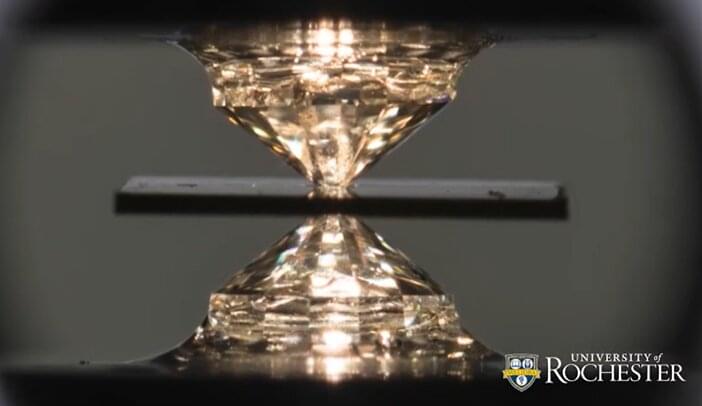In a historic achievement, University of Rochester researchers have created a superconducting material at both a temperature and pressure low enough for practical applications.
“With this material, the dawn of ambient superconductivity and applied technologies has arrived,” according to a team led by Ranga Dias, an assistant professor of mechanical engineering and physics. In a paper in Nature, the researchers describe a nitrogen-doped lutetium hydride (NDLH) that exhibits superconductivity at 69 degrees Fahrenheit (20.5 degrees Celsius) and 10 kilobars (145,000 pounds per square inch, or psi) of pressure.
Although 145,000 psi might still seem extraordinarily high (pressure at sea level is about 15 psi), strain engineering techniques routinely used in chip manufacturing, for example, incorporate materials held together by internal chemical pressures that are even higher.
